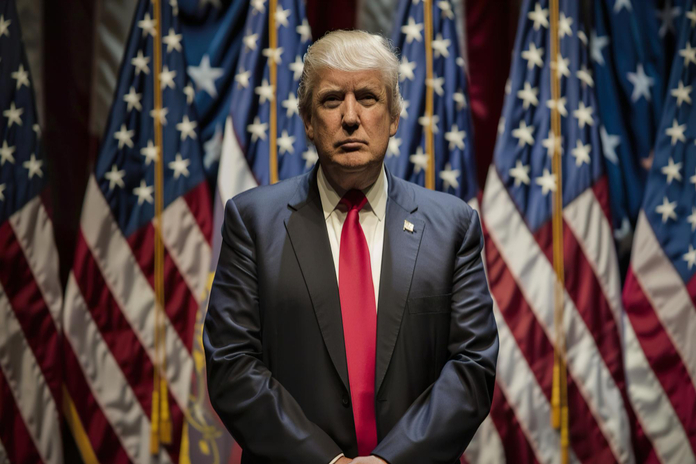It has been one month since Donald Trump returned to the White House, and his administration has wasted no time implementing sweeping changes. From executive orders to regulatory shake-ups, Trump’s crypto policies are reshaping the industry in unprecedented ways.
While his first day in office didn’t include specific cryptocurrency measures, his administration quickly pivoted, appointing pro-crypto officials, launching new regulatory initiatives, and stirring controversy with tariff policies that sent shockwaves through financial markets.
Trump Launches a National Crypto Strategy
Just days after taking office, Trump signed an executive order establishing an internal working group to make the U.S. the “global capital of crypto.” This group is tasked with drafting a national crypto strategy that could reshape how digital assets are regulated.
Notably, Trump’s directive explicitly bans the creation of a central bank digital currency (CBDC), a move that aligns with his campaign rhetoric against government-controlled digital money. Instead, the administration is exploring policies to encourage private-sector innovation in the blockchain space.
SEC Leadership Shake-Up
One of the most significant shifts in Trump’s crypto policies came with changes at the Securities and Exchange Commission (SEC). Trump nominated Paul Atkins, a longtime advocate for less restrictive financial regulations, to replace Gary Gensler as SEC chair.
While Atkins awaits Senate confirmation, Acting Chair Mark Uyeda has already signaled a shift toward a more crypto-friendly regulatory environment. The SEC quickly established a task force dedicated to defining clear rules for digital assets, a stark contrast to the previous administration’s enforcement-heavy approach.
Uyeda stated that the goal is to “draw clear regulatory lines, provide realistic paths to registration, and deploy enforcement resources judiciously.” This could mark a turning point for crypto firms struggling with regulatory uncertainty.
Trump’s Tariff Policies Impact Crypto Markets
On February 2, Trump introduced a new wave of tariffs targeting imports from Mexico, Canada, and China. The financial markets reacted sharply, with several major tech stocks and cryptocurrencies experiencing significant volatility.
Bitcoin (BTC-USD) saw a sharp drop following the announcement, reinforcing the growing correlation between crypto and traditional financial markets. Investors are now closely watching for further economic policy shifts that could impact digital assets.
Crypto-Friendly Treasury Secretary Confirmed
Another major win for the crypto industry came with the Senate confirmation of Scott Bessent as U.S. Treasury Secretary. Bessent, a billionaire hedge fund manager, has been vocal about his support for Bitcoin and decentralized finance (DeFi).
“I have been excited about the president’s embrace of crypto,” Bessent said during his confirmation hearing. “I believe it fits very well with the Republican Party’s values of freedom and innovation.”
Under his leadership, the Treasury Department is expected to push for policies that encourage institutional adoption of digital assets while reducing regulatory friction.
Trump’s Controversial Crypto Pardon
On January 22, Trump granted a presidential pardon to Ross Ulbricht, the founder of Silk Road. Ulbricht had been serving a life sentence for operating the infamous darknet marketplace, which facilitated Bitcoin transactions for illicit goods.
While the pardon was met with applause from crypto libertarians and prison reform advocates, it sparked backlash from lawmakers who viewed it as an endorsement of illegal crypto activity.
What’s Next for Trump’s Crypto Policies?
With a pro-crypto administration in place, the industry is anticipating more policy changes in the coming months. Key developments to watch include:
Stablecoin Regulations – Congress is working on legislation to establish clear guidelines for stablecoins, aiming to bring this market onshore.
State-Level Crypto Reserves – Several states are exploring the idea of holding Bitcoin in their treasuries.
SEC and CFTC Coordination – The SEC and Commodity Futures Trading Commission (CFTC) are expected to collaborate on defining the jurisdictional boundaries for crypto assets.
Trump’s first month has already had a profound impact on the cryptocurrency sector. Whether these policies will foster long-term growth or introduce new risks remains to be seen, but one thing is certain—the crypto landscape is undergoing a transformation under Trump’s leadership.
Featured Image: Freepik
Please See Disclaimer
Source: https://cryptocurrencynews.com/market-news/trumps-crypto-policies-a-transformative-first-month/



